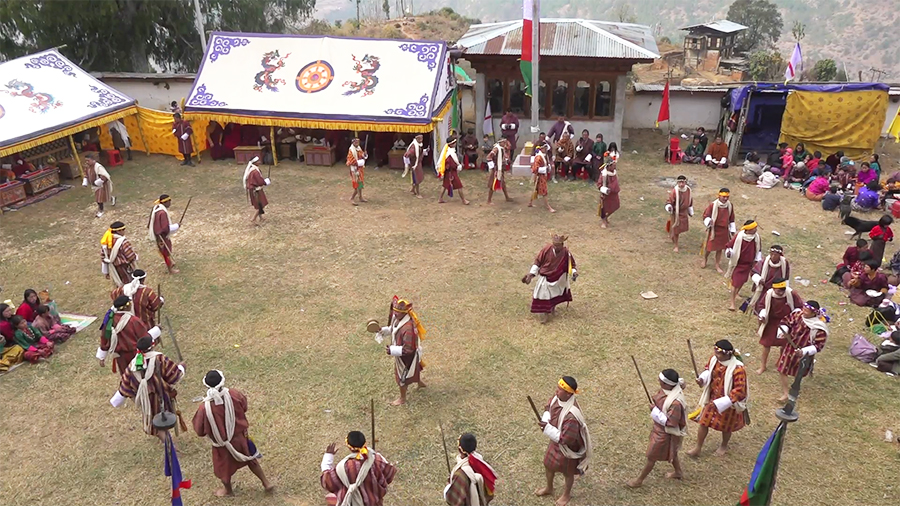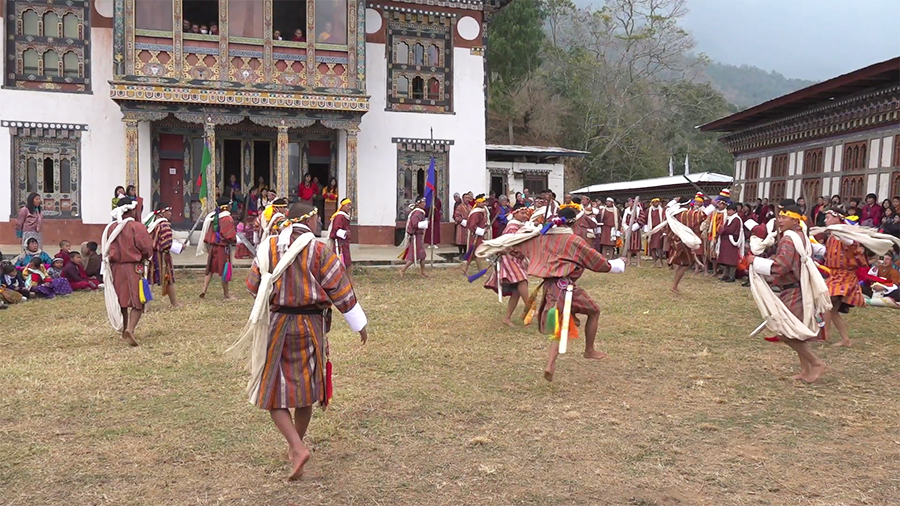
The Bala-Bonko in Wangdue Phodrang, a culture once on the brink of fading has now returned to its vibrancy. In the past, the festival saw fewer participants as students returned to schools and many villagers moved to summer residences during the time of the event. The festival which was conducted in the first month of the Bhutanese calendar until a few years ago is now being performed a month early.

At this time of the year, students are on their winter vacation and they are all engaged in the Bala-Bonko in Bjena Gewog. The Bonko was conducted on Tuesday.
Among the youth wearing their finest attire is 17-year-old Sangay Thinley. He is participating as a Pazap for the first time this year.
“Other men from my house participate as Pazap. I took an interest and practised for two days. The main event is on the third day. I feel proud as I am able to perform it after learning from our elders.”
Like him, there are more than 20 students taking part in the festival to preserve the age-old tradition.
“We the younger generation are worried as we did not know our culture. However, we are now taking part in the event by learning it from our elderly people. We are participating with our elders, and we will preserve the culture,” said Dawa Tshering, a student.
While the male students participate as Pazaps, the girls perform cultural programmes.
Bala-Bonko is celebrated to pay homage to the protector deity Radrap. It is conducted at Balaha Lhakhang and the people of Tashi Tokha and Bjenalungpa-Thingmakha Chiwogs take part in the celebrations.
With a substantial number of young participants, the elderly people are all smiles.
“We are happy to see youth participating in the event. We appreciate their participation. Once we were worried as the culture was declining,” said Dophu, a resident.
“People used to go to different places during the first month of the Bhutanese calendar. So, we were facing a shortage of participants in the past. But now it is celebrated in the 12th month of the Bhutanese calendar when students are on vacation and the villagers also stay in the village. That’s why we have more participants. I am hopeful that the practice will continue hereafter,” said Rinzin Dem, another resident.
To further preserve the tradition, the local leaders are planning to set up a committee.
“Hereafter, we will make rules and regulations and involve more people as members of the committee. This is to preserve the culture. Likewise, the organisers will have to take some responsibilities once we make the rule. Then, there will be some penalties for the defaulters,” said Kinley Tawchu, the Bjena Gup.
With such active participation by the youth and efforts from the Gewog administration, the villagers are hopeful that their culture will not vanish hereafter.
Changa Dorji, Wangdue Phodrang
Edited by Tshering Zam









